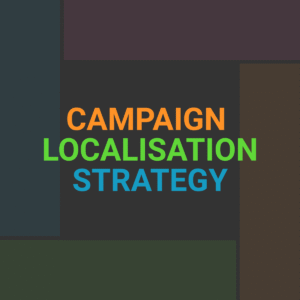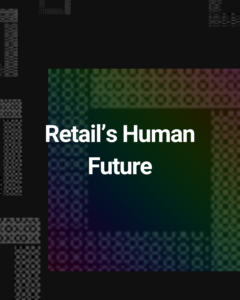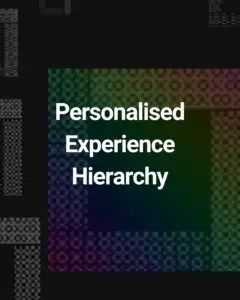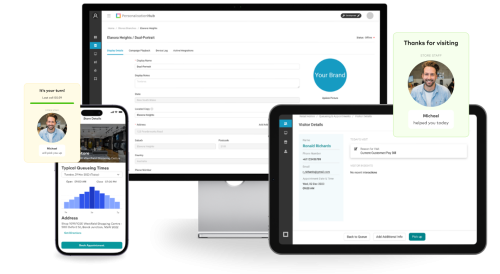In today’s post I’ll cover why personalised customer experiences will not be controlled by Brands (in the future).
When it comes to AI Organisations should initially focus on:
- Data, data, data (as per previous posts)
- Efficiency → Understand & Optimise every process (incl. human gatekeepers)
- Support connected, personalised & real-time experiences, everywhere (get rid of legacy systems)
I won’t talk about data again (read my older post on this). Except to re-emphasise. Bad data = Bad insight/recommendations/decisions/experiences.
From an organisational perspective, I believe that the biggest opportunity that AI will provide is around internal process optimisation & customer service improvement (ensuring that organisations are getting the basics right first).
Analyse how your organisations performs every task today. Map these out (end-to-end) & then identify what can be automated/optimised using AI & what needs to be validated by humans.
I’ve worked with large organisations for several decades now. I can tell you that they do not operate efficiently & 5 star customer service is still a long way off.
What about Customer Experience?
Look back at my posts on the personalisation value chain & ensure that you are in a position to start supporting personalisation in real-time (working across the value chain). Don’t listen to your vendors/consultants, speak to your full-time staff that work with these platforms everyday to understand how flexible & real-time they truly are.
Over the following months, I believe that brands will retain control over their customer experience, as initially only early adopters will start depending on Personal AI Agents (for everything). As Personal AI Agent experiences improve, this will shift to a much larger user base (to early & eventually late majority)
The focus should be on streamlining everything, however making sure that you can support real-time experiences.
Organisation’s with solid mobile apps are in a great position. These companies need to ensure that customers can seamlessly authenticate their Personal AI Agent with your mobile app & that these agents can start to perform certain tasks on behalf of your customers. Your mobile app should be seen as a trusted relationship that keeps your brand/offers in-front of your customers.
I believe that we will start to see a similar change to what occurred when social media took off. Brands used to be in charge of their own narrative. This changed & the narrative was increasingly controlled by customers, across their collection of social media channels.
The same will happen to marketing (driven by AI adoption). Brands will gradually lose control over their experiences. These experiences will be controlled by Personal AI Agents. These agents will look for the best deals with the path of least possible resistance for their “CEOs” (more on this later).
Any Brand that does not support a co-ordinated & connected experience (end-to-end) will be excluded from the purchase process.
If your brand selects to compete on price – then poor customer service/experience may initially be acceptable. However, a budget price strategy will become an increasingly slippery slope. As more advanced organisations (that have fully adopted AI) will become more & more efficient. They will eventually be able to retain their margins whilst at the same time beating your once low price.
Obviously, my personal view is that bricks & mortar retail will play an increasingly important role in the future.
When Covid struck, everyone declared that physical retail was dead & that everything will go online. As soon as the world reopened again, retailers were just as busy (if not busier) than their pre-covid levels.
As everything becomes more & more digitised. People will seek out personal contact/connections. People like to talk about & share their experiences with one another. Many retailers will evolve to support these local community interactions. We are starting to see retailers set-up dedicated areas within their stores based on customer interest. With the rise of Retail Media Networks, I believe that this will become the norm (as Advertisers can more effectively target their audiences).
Even in physical retail, my view is that AI Agents will also eventually be in control (I’ll blog more about this later).
The following analogy highlights how marketing will change:
You are engaged directly by your CEO (on a critical program within your organisation). You are assigned as the executive responsible for a successful program delivery. You receive hundreds (if not thousands) of pitches everyday. Are you going to send all of these pitches through to your CEO? Absolutely not. This is exactly what will happen with Personal AI Agents. Personal AI Agents will be the gatekeepers to what gets their CEO’s attention.
Personal AI Agents will decide, which brands are easy to work with, what local brands support a trustworthy & streamlined experience. How did (their CEO) feel last time he/she dealt with this brand? If it’s the first time dealing with this brand, what do all the online reviews say? Am I going to get fired if I recommend this brand to my CEO?
If any past experiences or reviews are bad… Guess what? The AI Agent will not even surface your brand’s offer to its CEO…
Your mobile app should form a core part of your AI strategy. If a Personal AI Agent gets fired & a replacement gets hired (downloaded onto a user’s device). Your mobile app should support a seamless transition between AI agents, ensuring that you are instantly considered as a “trusted” brand/vendor. The new Personal AI Agent will likely surface your offers first (because they know they won’t get fired & they’re new here).
From a Personalisation Hub perspective, we anticipated these changes. We’ve built the platform to ensure that our clients can seamlessly transition from the Old (brand controlled) World, to the New (agent controlled) World.







